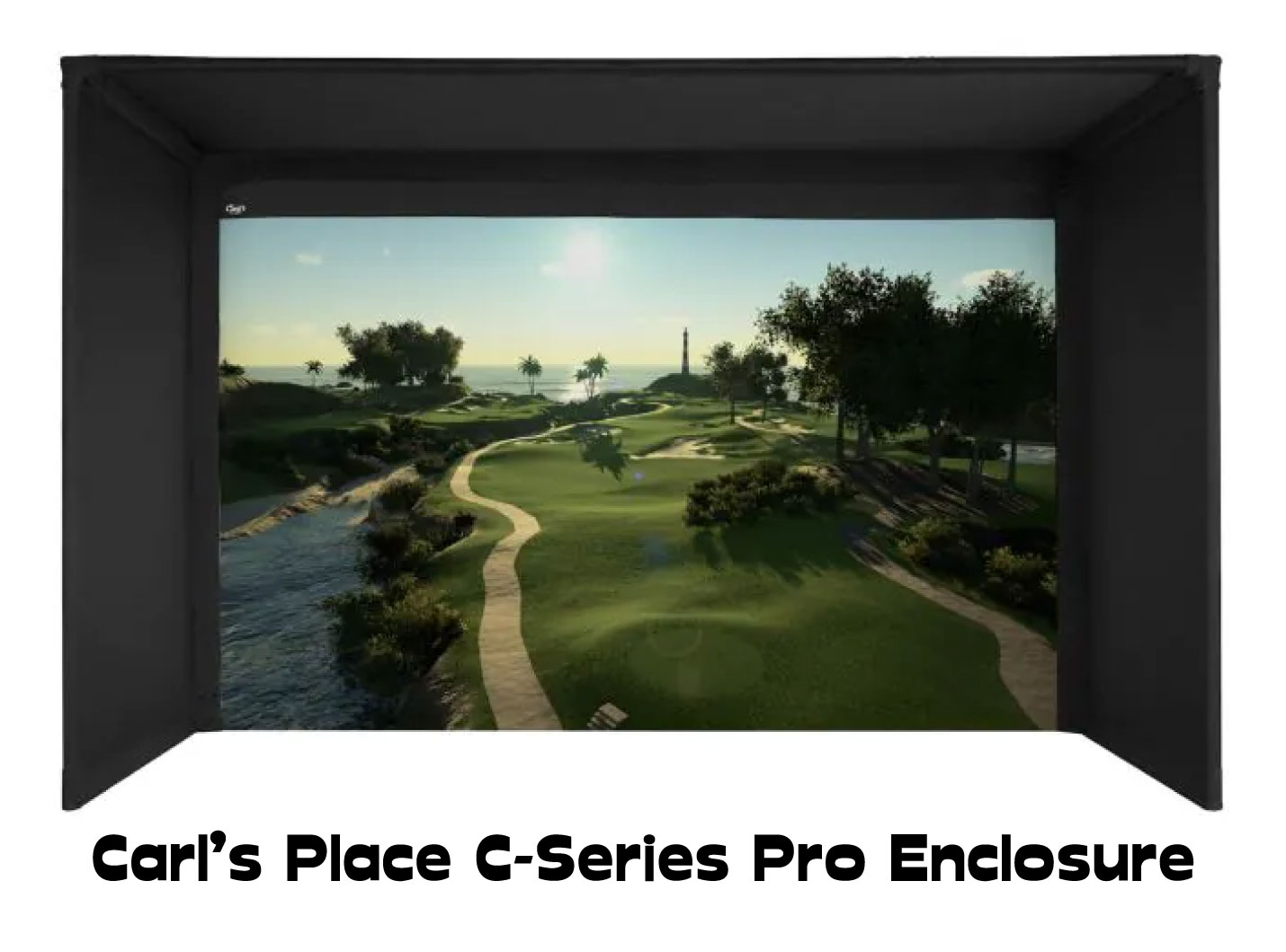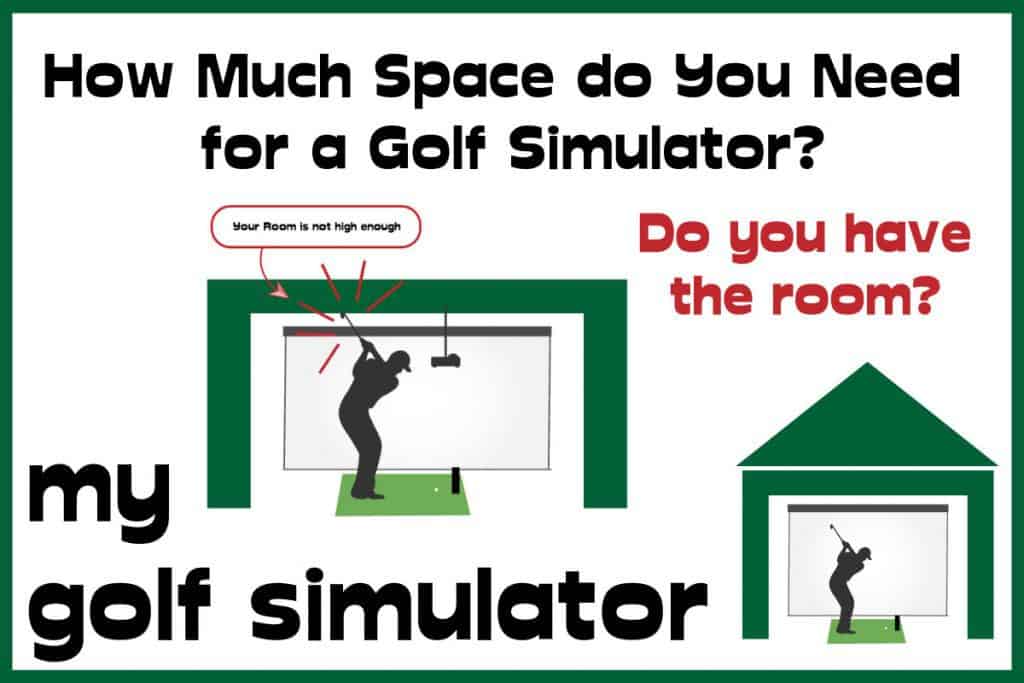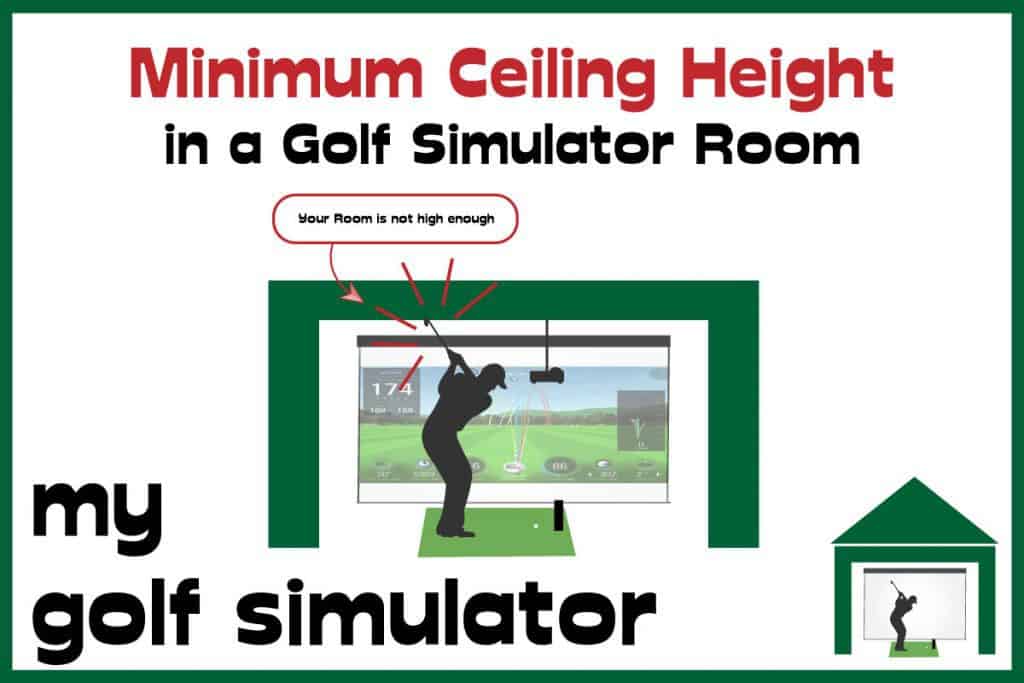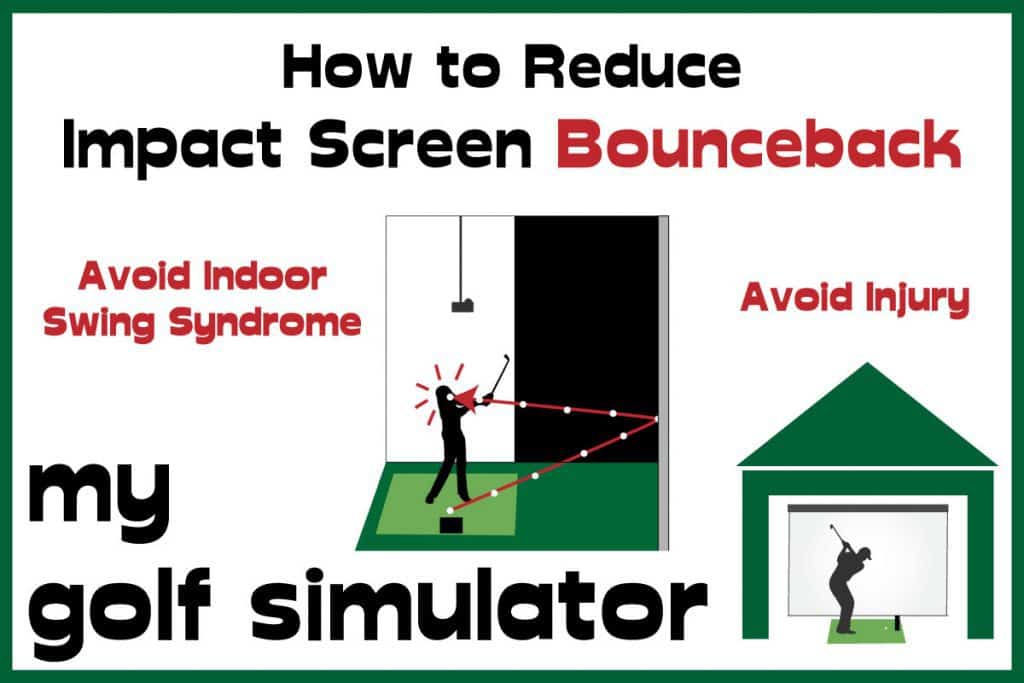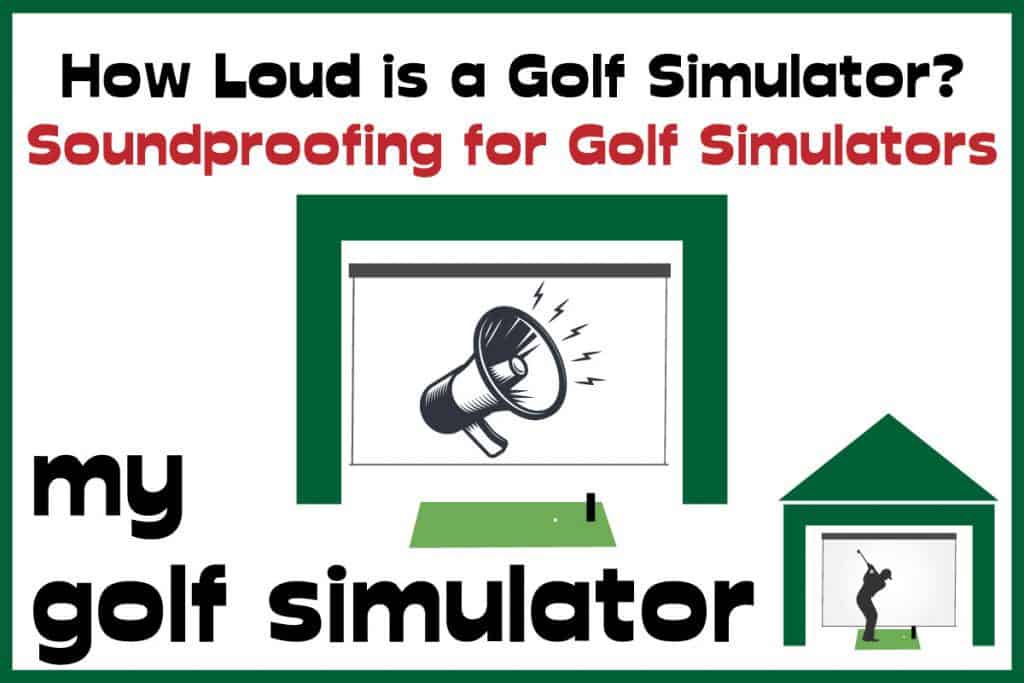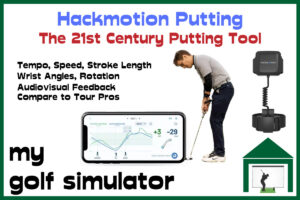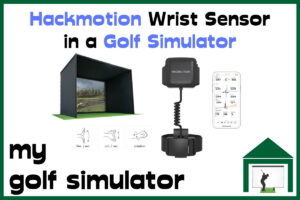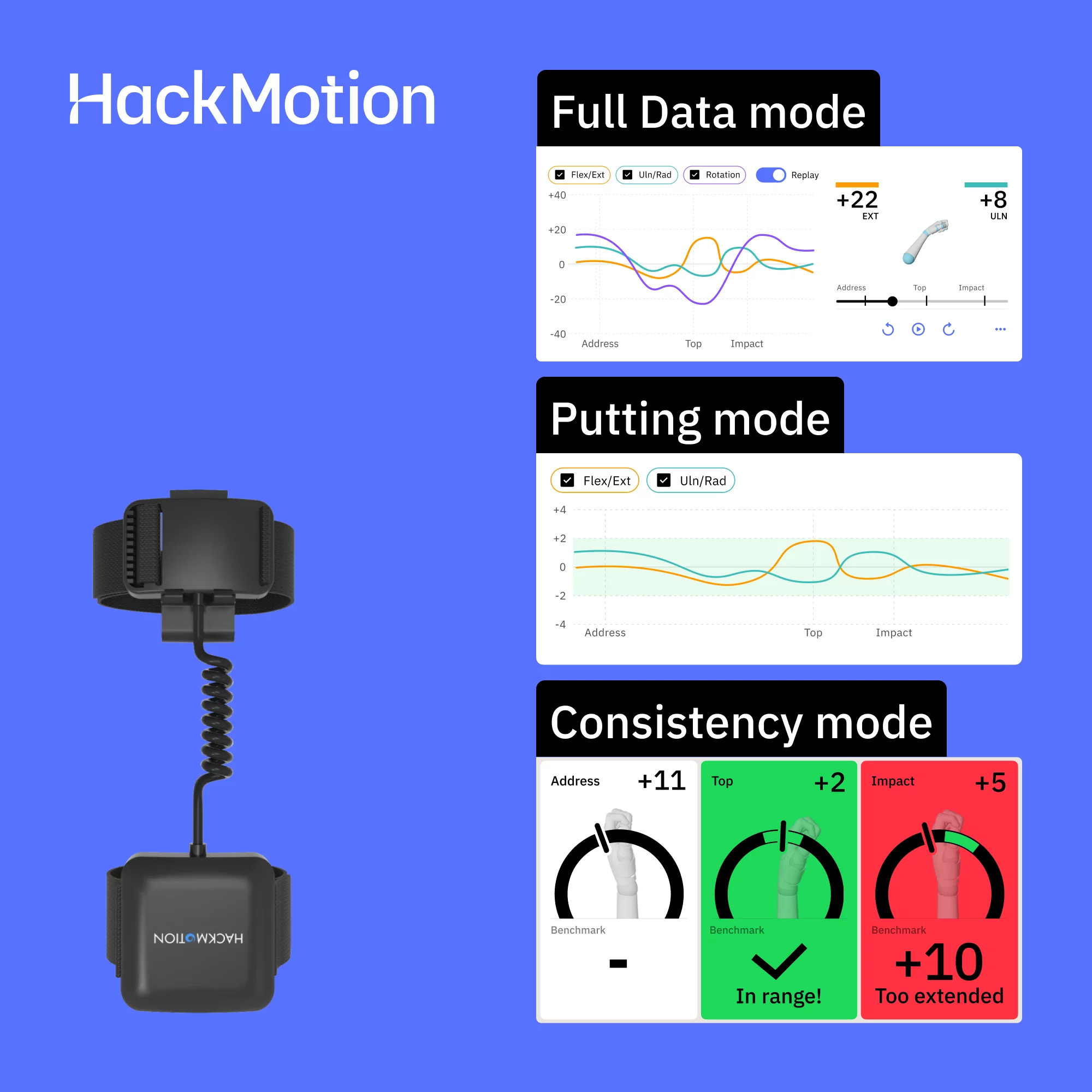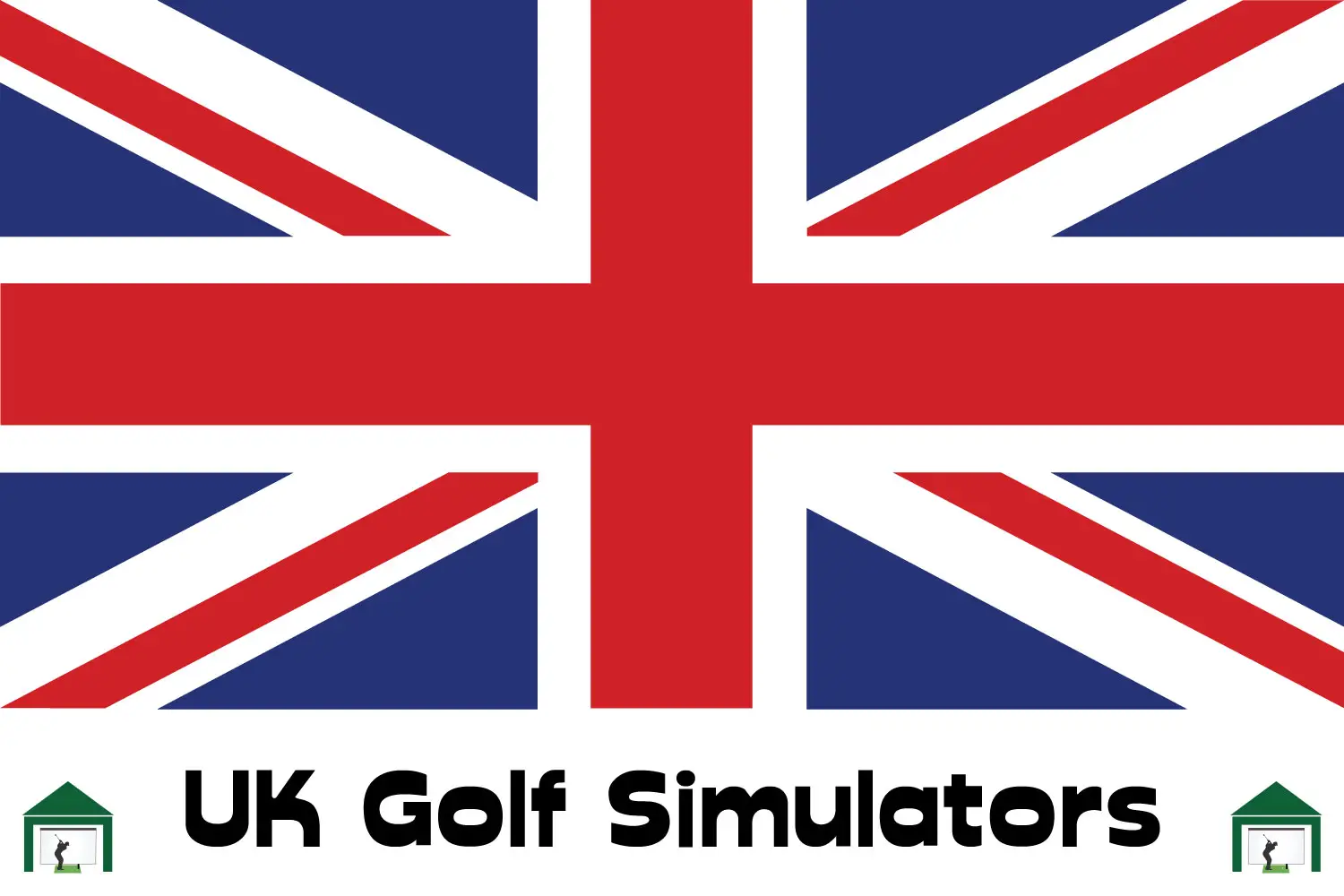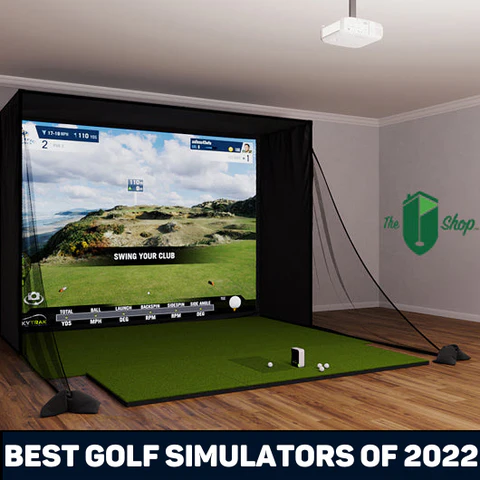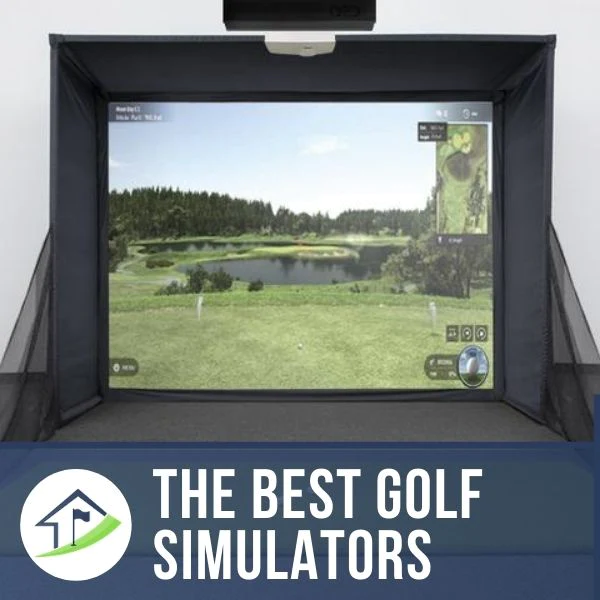Do you have a golf simulator room with limited length? Are you wandering what the correct or minimum tee to screen distance should be? By reading this article you will learn all the required distances and the considerations to make with each space.
The distance between the hitting area and screen in your golf simulator should be at least 6-7ft and can be up to 14ft and longer. The tee to screen distance is a balance between immersion, reducing impact screen bounceback and allowing maximal accuracy from your launch monitor.
We will cover the required distances between your hitting position and impact screen, the impact screen and the wall and the distance behind the golf ball.
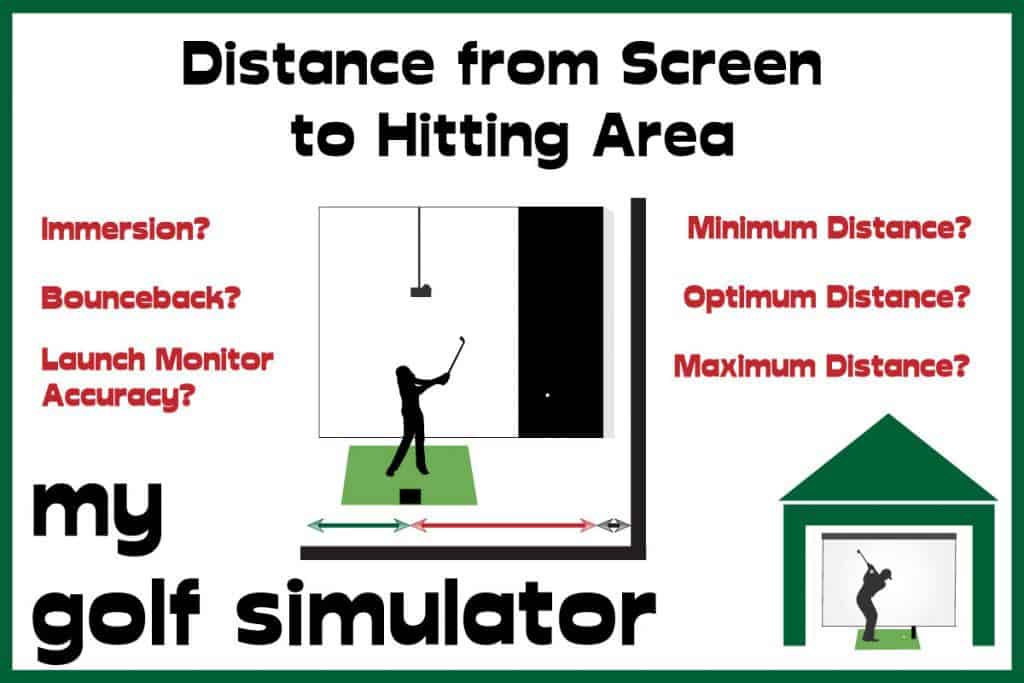
Golf Simulator Room Length Explained
The length of a golf simulator room can be split into three smaller distances; the distance from tee to screen, from tee to back wall and the gap behind the screen. You will need more space if you need to position your launch monitor behind you, such as is required with radar based systems.
Length is usually not a factor that ruins someone’s golf simulator plans, as inadequate height and room width can be.
Planning your Golf Simulator by Starting with Your Hitting Position
As I have said in previous articles on golf simulator space requirements, I recommend starting your golf simulator plans with your hitting position.
Choose a position, ideally located with the ball position perpendicular to the center of your future impact screen. You could even draw a line on the ground with chalk from the future screen center right back to the back of the room.
Then test your swing at various points on this line. Do you have enough room length to make a full swing at each point, with driver?
Read this article to learn the pros and cons of each position in the long axis and then decide firmly on your hitting position. The rest of your golf simulator can be built from this point!
Tee to Screen Distance in a Golf Simulator
What’s the Minimum Distance from Screen to Hitting Area?
The minimum distance from the screen to the hitting area that I would recommend is 6-7ft. This distance will allow you to swing the club, the ball to take flight and impact the screen without dangerous bounceback. You will certainly maximise your immersive golf simulator experience at this distance.
What happens if your hitting area is too close to the screen?
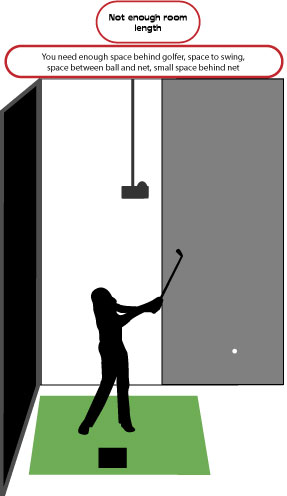
Bounceback
One of the biggest problems being too close to the impact screen is bounceback. This is the ricochet of the ball backwards off the screen and towards the golfer, or in any unpredictable direction. In the worst circumstances this can threaten your equipment, yourself or your family or friends.
The greater the kinetic energy with which the ball strikes the impact screen, and the less slack or cushioning in the screen, the greater the bounceback. The ball will generally have more kinetic energy for a given shot the closer it is struck from the screen. You can learn much more about bounceback and how to reduce it in my dedicated article.
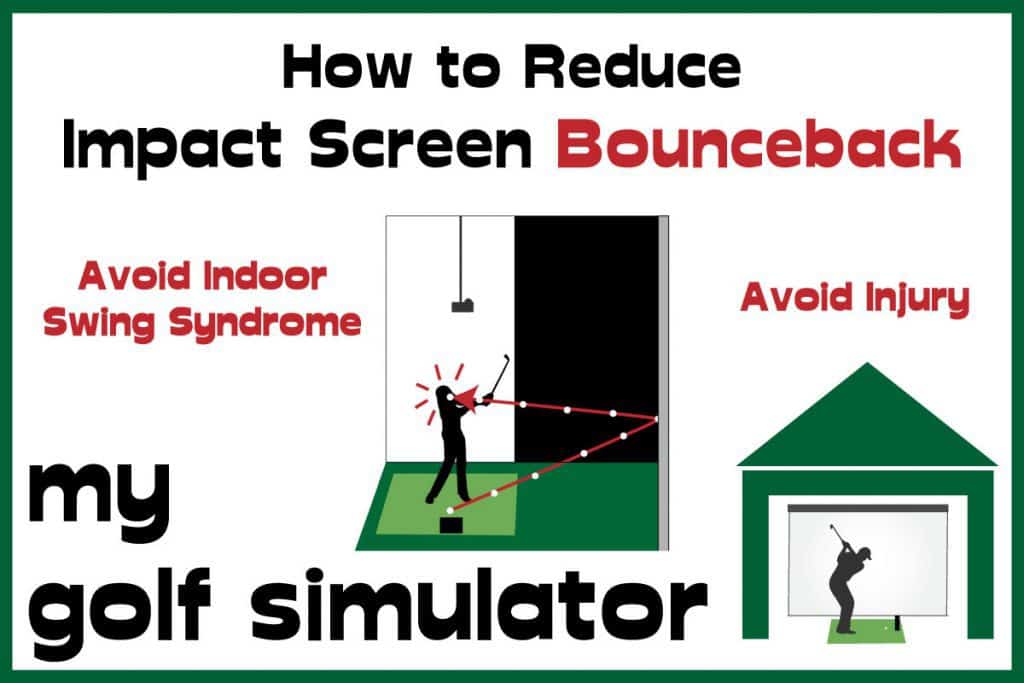
Swing Studio Features
A small gold simulator room will limit your ability to kit out your space with extra ‘swing studio’ features such as cameras, mirrors and sofas and other furniture.
Screen Imperfections and Image Quality
You will also start to appreciate individual pixels on your impact screen, and you’ll notice your screen’s imperfections a lot more from close range.
This effect is counterbalanced by the fact that you’ll probably feel more immersed in the experience, especially if you have a large high quality screen and your computer and projector are churning out strong graphics settings.
Here is a video from Youtube Channel Topblokes Golf Reviews showing you Skytrak being used in a very small room.
What’s the Optimum Distance From Screen to Hitting Area?
The optimum distance from the impact screen to hitting position in your golf simulator is around Z ft. An optimum distance means a perfect balance of immersion in your golf simulator whilst allowing accurate launch monitor readings and minimising bounceback and excess noise from your screen.
Is there a Maximum Distance from Screen to Hitting Area?
There is no maximum distance from the screen to your hitting area, though there are several disadvantages of being too far from the screen. Your launch monitor will still continue to work, they don’t require the ball-screen impact to occur in order to register your shot.
What happens if your hitting area is too far from the screen?
Missing the Screen
If you position your hitting area too far from the screen, you run the risk of missing your screen (and even enclosure) altogether with a shank or other poor shot. This would be quite embarrassing if you have friends round.
You’ll also find that your high lofted shots could miss the screen, hitting the roof of your golf simulator area and causing damage or ricocheting off the framework of your enclosure.
You will need to construct an enclosure for your golf simulator which matches the planned length of the room. Planning a hitting area at 16ft from the screen with only 5ft deep enclosure walls is not the safest setup.
I recommend much deeper enclosures for longer golf simulators. This will improve immersion and safety at the same time.
Lack of Immersion
Too far from the impact screen and you’ll find reduced immersion in your golf simulator too. The optimum immersive golf simulator experience is traditionally felt to be one of the ultra premium simulators with a curved screen, one can wish!
Trackman Indoors Room Length Requirements
Trackman can be used indoors and has historically needed quite a bit of space, particularly room length. However, the required room length has been reduced significantly with several firmware updates. These have largely brought improvements in the measurement of spin and hence improved accuracy in smaller spaces.
The adoption of Titleist’s RCT Pro V1 balls (which have in-built metallic dots to aid spin capture) by many golfers has improved indoor performance further.
The recommended total room length for a Trackman 4 indoor golf simulator is 21 feet or more. This is split into 9 feet distance from Trackman to the ball and 12 feet or more of ball flight. Trackman 4’s minimum total room length is 17 feet. Trackman recommends longer rooms for those with higher swing speeds.
The Distance Behind the Golf Ball in a Golf Simulator
You will require more distance behind the golfer in a golf simulator if you choose a radar-based launch monitor such as Mevo Plus or Trackman. These launch monitors require enough room length to be able to view the initial flight of the ball and accurately record the launch direction, speed and spin.
Camera based launch monitors such as Skytrak and GC2 sit in front of the golfer and don’t require a specific distance behind the golfer. As long as you can swing the club (and not hit the back wall) you will be able to use these launch monitors without worrying about the space behind you.
The space behind the golfer can also be used for setting up swing cameras, mirrors, chairs or even a bar. You may also set up this space differently if you combine your golf simulator space with a home theatre setup.
The Gap Behind the Impact Screen
You need around 1ft of the space behind your impact screen to allow deformation of the screen when struck with a golf ball. This minimises bounceback and noise, as the ball is not likely to travel into the net and still strike the wall behind.
You can also fit extra bouceback protection in the space behind your screen, in our post on bounceback we talk about options including memory foam and large heavy blankets.
Distance to Screen Guidance for Specific Launch Monitors
Tee to Screen Distance – Uneekor QED and EYE XO
Uneekor QED – Distance from Impact Screen
17ft is the minimum recommended room length for a Uneekor QED golf simulator. Uneekor recommend 10ft from tee to screen to avoid bounceback problems. You can probably get away with less tee to screen distance though. The QED must be mounted 3.5ft behind the golfer.
Please note that many golfers have successfully featured a Uneekor QED in golf simulators using less tee to screen distance than this.
Whilst experiencing more bounceback and noise, the QED will should still work fine. The QED is essentially a camera based system so it only needs a short space in front of the golfer to observe the initial launch of the ball.
The Uneekor QED should be mounted 3.5ft behind and above the golfer, this distance is important to allow accurate data collection.
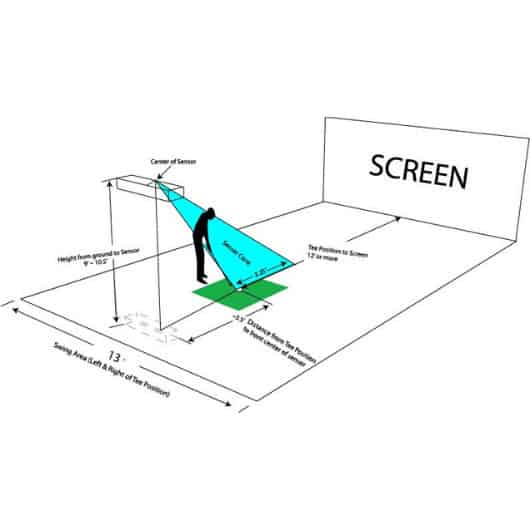
You can learn more about the Uneekor QED space requirements here at my dedicated article.
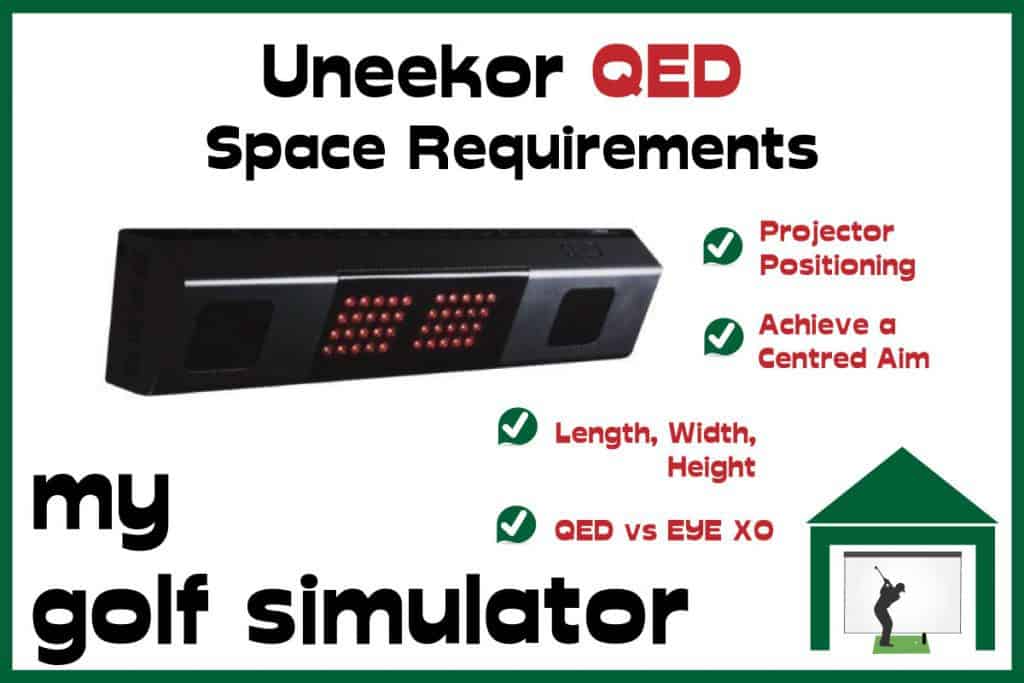
Uneekor EYE XO – Distance from Impact Screen
16ft is the shortest room length that is recommended for a Uneekor EYE XO golf simulator. Uneekor recommend 10ft of tee to screen distance but you can probably work with less. You still need room to swing, room for the ball to fly, impact the screen and a little room behind.
Again, note that 10ft is the recommended tee to screen distance from Uneekor as per their instructions on room setup. Many golfers use the Uneekor launch monitors in smaller spaces with success.
The EYE XO sits 3.5ft in front of the golfer and monitors the hitting area and initial launch window as in the diagram below. I don’t believe you need the full 10ft of recommended tee to screen distance and I suspect the longer distance is due to safety and bounceback concerns.
However, if you’re working with a shorter distance and considering a Uneekor launch monitor please contact them directly.
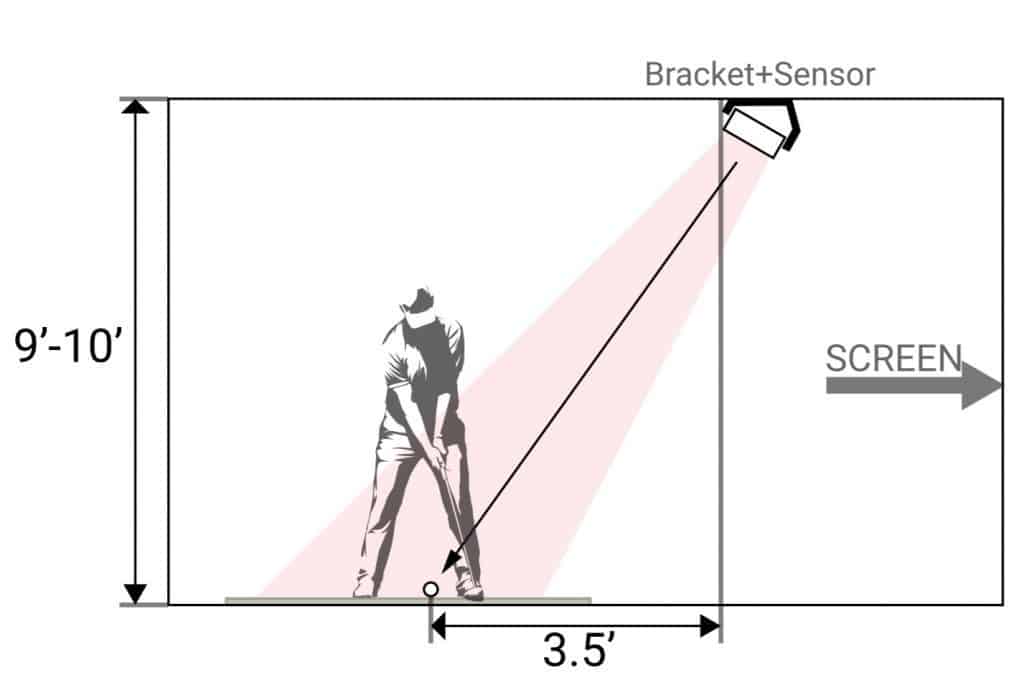
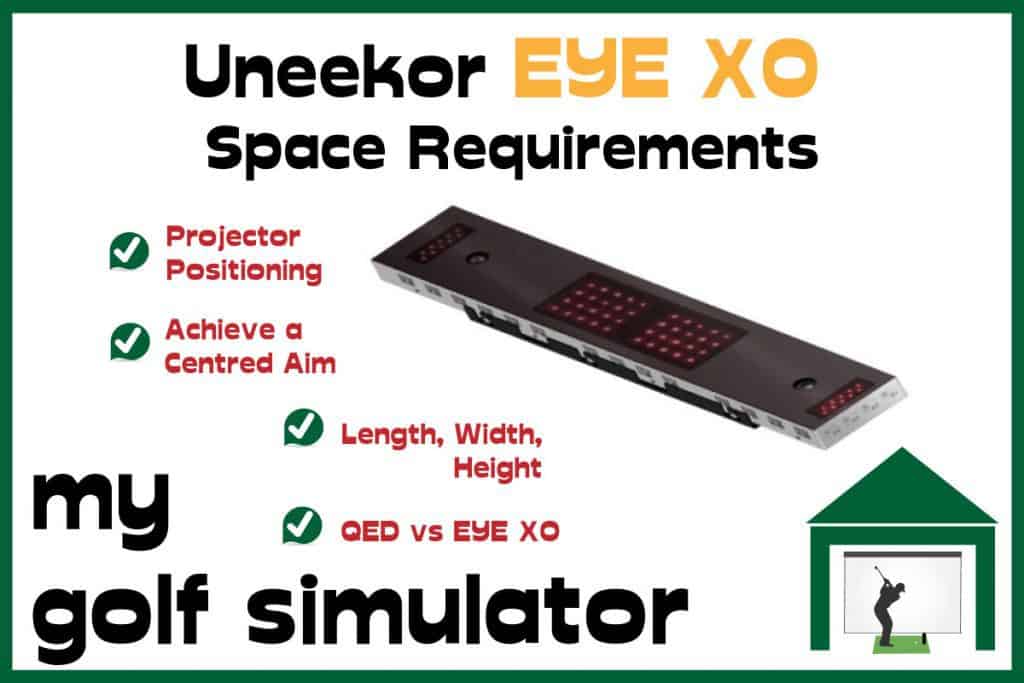
Tee to Screen Distance – Skytrak
I recommend 12 feet (3.65m) in minimum room length for your Skytrak simulator. This distance will need to include space to swing, space for the ball to fly, and space behind the impact screen for it to deform. However, you really only technically need space to swing.
The minimum tee to screen distance for Skytrak is probably around 6ft to avoid bounceback problems. Though as long as you have room to make your follow through without hitting the screen, Skytrak will record accurately.
Skytrak sits in front of the golfer and only requires enough room length for you to swing and for the ball to move a couple of feet. Skytrak does not require any additional space behind the golfer as the radar launch monitors do.
Skytrak actually report a minimum total room length of 10ft. I suspect this relates to setups without impact screens, perhaps using nets.
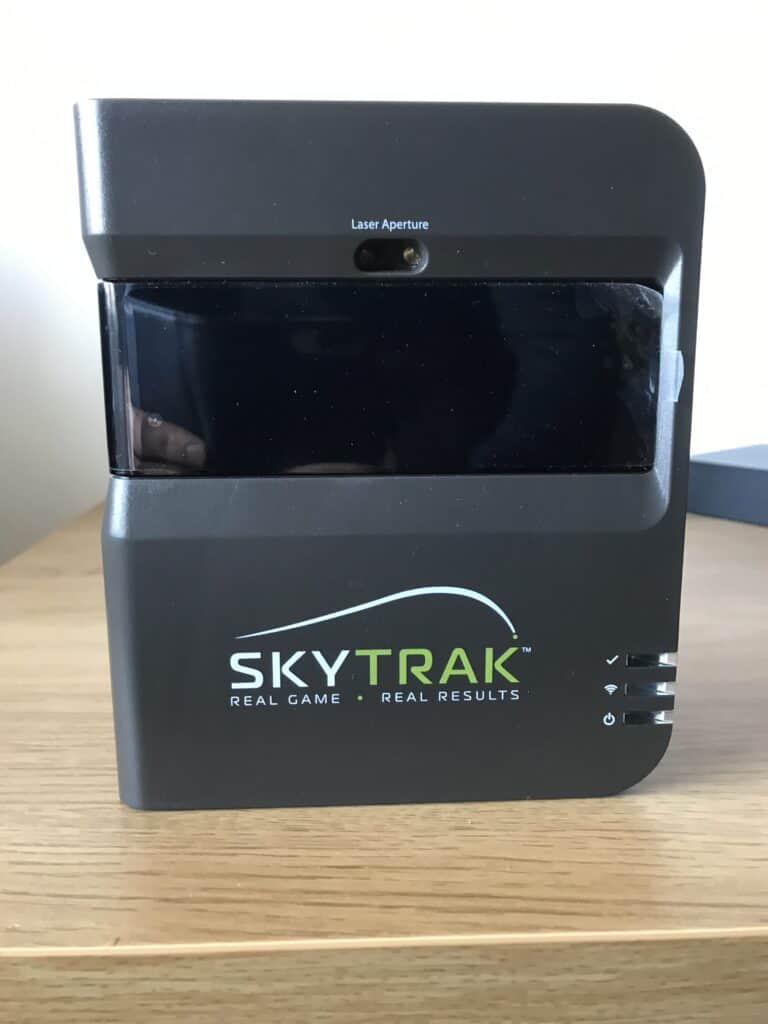
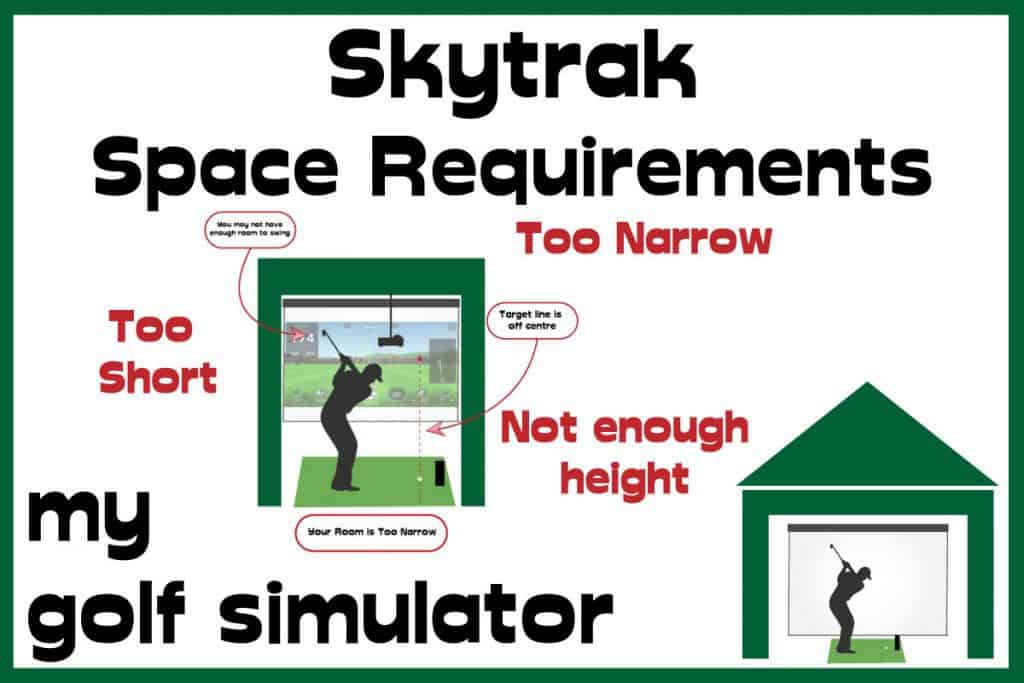
Tee to Screen Distance – Mevo Plus
Mevo Plus is a radar based launch monitor and should be placed directly behind the golfer. Your room length needs to accommodate both the tee to screen and tee to Mevo Plus distances.
Flightscope recommends that Mevo Plus sits 7 feet (2.1 meters) behind the tee, though it is also recommended that you move it closer to the tee as you move down from a driver to a wedge, the tee to Mevo Plus distance comes down to 4ft for your shortest clubs.
Mevo Plus works by monitoring how the ball flies. FlightScope recommends a minimum of 8 feet (2.7 meters) from tee to screen or net. You may find that accuracy is increased if you have a little more space however, as the ball will have more space to fly and Mevo Plus will have more time to record data.
What is the total room length needed for Mevo Plus indoors?
The minimum room length requirements for the Mevo Plus is 15-16 feet in ‘Short Indoor Mode’ (see below).
20-22 feet (6.1-6.7 meters) is the optimum total room length for Mevo Plus’ regular indoor mode. This will maximise comfort and accuracy with all clubs. This would be split into 13ft tee to screen and 7-9ft tee to Mevo Plus.
| Dimension | Minimum Size For Mevo Plus Indoor Mode (ft) |
|---|---|
| Length | 20-22 ft |
| Height | 10 ft |
| Width | 10-15 ft |
What is Short Indoor Mode with Mevo Plus?
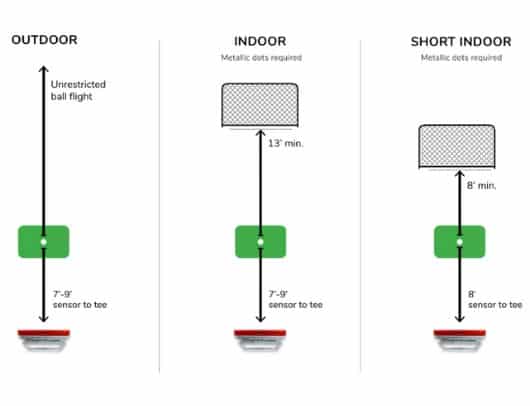
When I began researching all about the Mevo Plus, I found their use of the terms ‘indoor mode’ and ‘short indoor mode’ very confusing. Were these just terms to describe the dimensions of various simulator setups or were they actual modes within the Flightscope app, which you have to click on or off depending on your setup?
I contacted Flightscope directly to find out.
Flightscope replied, that the short indoor mode (and regular indoor mode) are actual settings you pick within the Mevo Plus app software. This allows the Mevo Plus to pick the correct area to monitor (ie a viewing window) so that it doesn’t lose track of the ball.
| Dimension | Minimum size for Mevo Plus Short Indoor Mode (ft) |
|---|---|
| Length | 16 ft |
| Height | 10ft |
| Width | 10-15ft |
When using Mevo Plus inside you’ll have to use their metallic dots on the golf balls to assist with spin readings. You can read more about that and many other space requirement considerations here at my dedicated article.
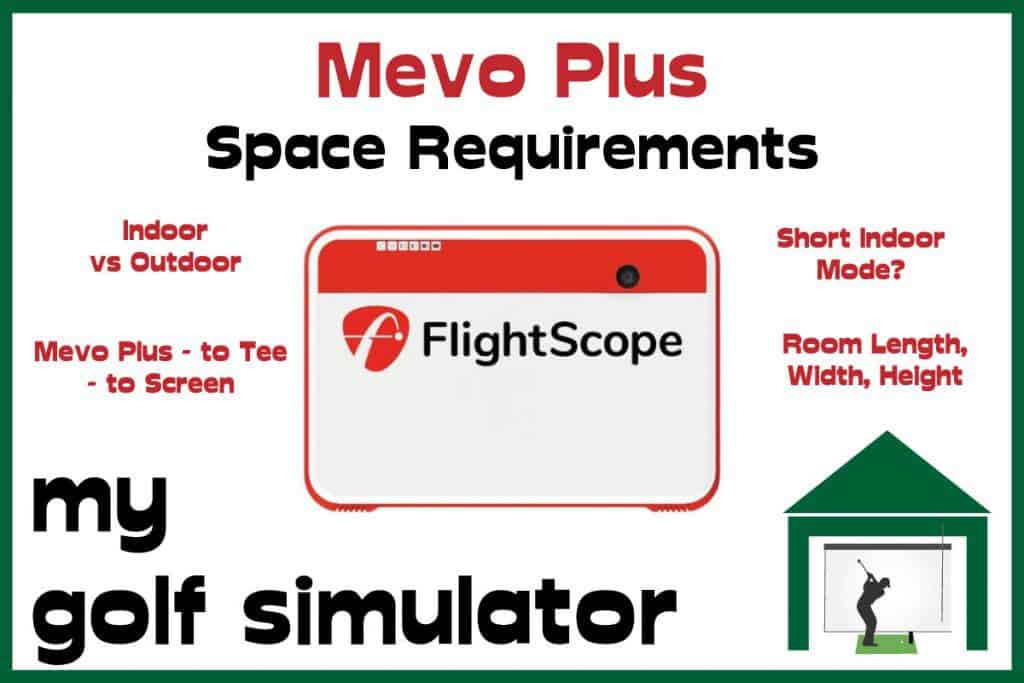
What’s the Minimum Ceiling Height in a Golf Simulator?
As if the tee to screen distance wasn’t enough of a headache, you also need to ensure you have adequate height and width in your golf simulator. This can be especially difficult for those with a sloped or non flat roof.
Those with a sloped roof may have to sacrifice the perfect room length and width for the place in their room with adequate height to swing.
Nevertheless, the minimum height required for a golf simulator is 9ft, (8.5ft is an absolute minimum for shorter golfers with wider swings), with 10ft providing a much more comfortable experience.
You can learn a lot more about what makes an adequate ceiling height in our dedicated article here.
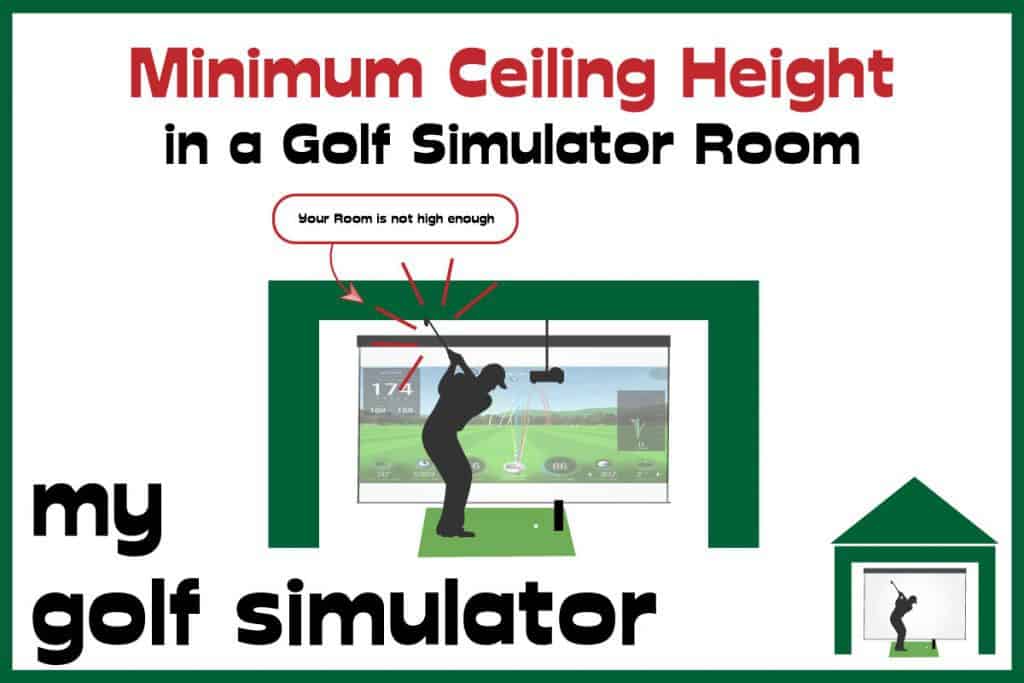
What about Room Width in a Golf Simulator?
You need enough room width to swing the golf club and not hit the wall behind you. Ideally you will also have enough room width to achieve this whilst addressing the golf ball with a target line centred on the impact screen.
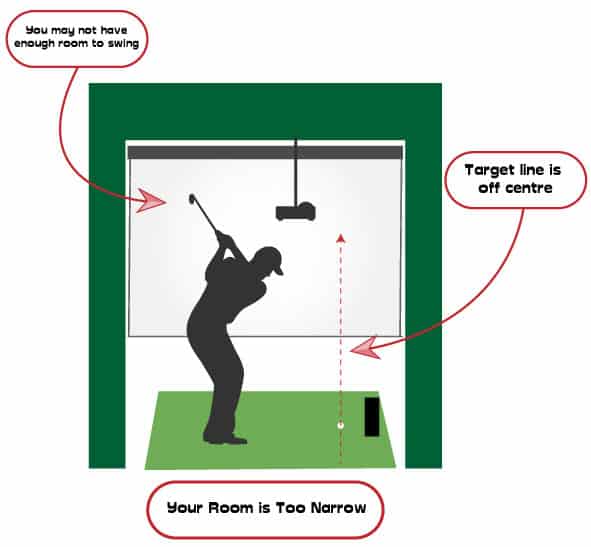
The Impact of Room Length on Your Projector Choice
How far you address the ball from your impact screen will clearly have an impact on your choice of both projector model and projector placement.
Your hitting position needs to be assessed alongside your projector position because you need to both avoid projecting shadows onto your impact screen and striking with projector with club or ball.
We have much more on this important topic in my dedicated post, Where to Mount Your Golf Simulator Projector.
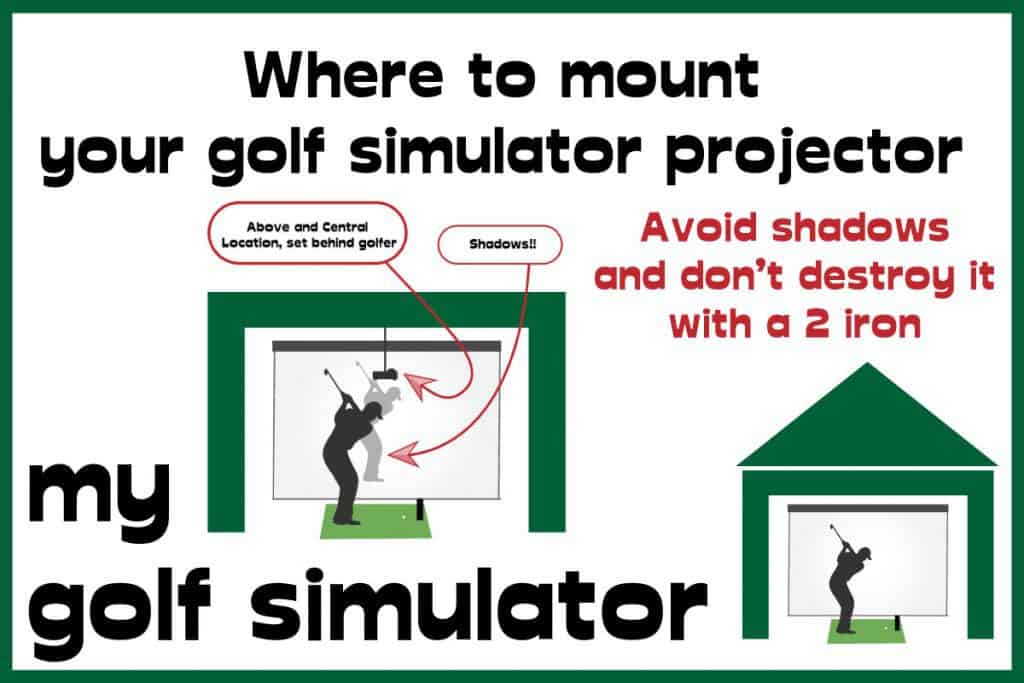
Golfers who have a short tee to screen distance will need a projector that’s quite close to the screen, unless you have lots of ceiling height and can find a position behind you which doesn’t cast shadows or interfere with your swing.
Positioning the projector close to the impact screen will require a lower throw ratio. Use this measurement alongside alongside aspect ratio to get the image perfectly sized on your screen.
Check out the throw calculator at projectorcentral.com for their super useful tool which tells you how far away a given projector will project a certain sized image.
You could consider a floor mounted projector in these circumstances, with central floor-mounted positions and off-center floor-mounted positions to consider. Horizontal keystone correction may be required for off-center locations.
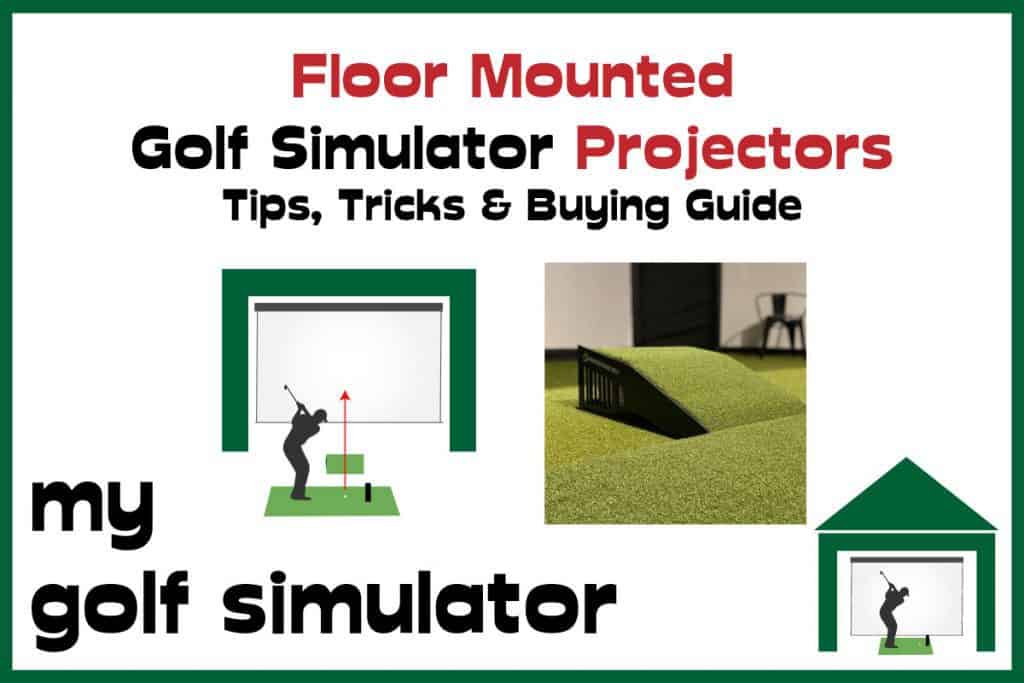
There is a lot to consider when planning the perfect golf simulator projector purchase and position. Mygolfsimulator.com has lots of information all about projectors in golf simulators. Take a look here.
To Sum Up – Do you have enough Room Length?
I hope this article has answered some of your questions about the tee to screen distance in your golf simulator.
12 Considerations for Tee to Screen Distance in your Golf Simulator
The right tee to screen distance depends on you and your simulator. Specifically you should consider:
- The total length, width and height in your space
- Any abnormal dimensions in your space such as a sloping roof
- Your choice of launch monitor
- How deep and tall is your enclosure?
- Your choice of screen, how loud it is and how much bounceback it gives
- How tolerant are you of bounceback?
- Have you protected the rest of your room and enclosure from bounceback and ricochets?
- How you hang your screen and whether you place anything behind it
- Your projector choice and placement
- How immersed you want to be in your golf simulator
- The screen and projector quality – will you see imperfections and individual pixels being quite close to the screen
- Will anyone else be using your simulator, who may have a wider swing than you, or a longer follow through?
Good luck with your golf simulator build! Check out our related content below! Thanks 🙂
Check out our related articles
Putting with Hackmotion – Step by Step Guide
HackMotion in a Golf Simulator: All the Data you need!
ABOUT THE AUTHOR
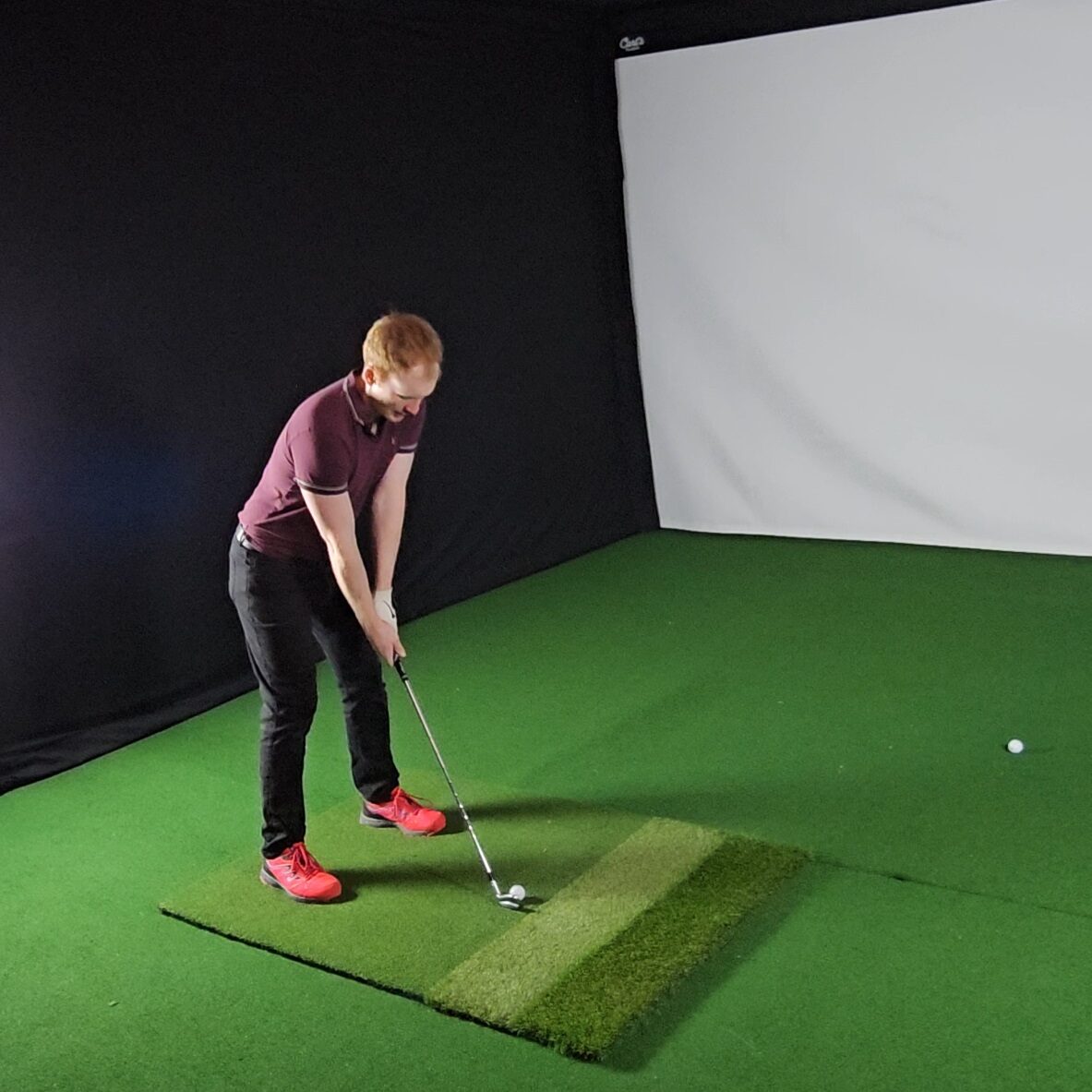
Hello! My name is Alex and it is my mission to bring you all the information you need to build your own home golf simulator! I hope mygolfsimulator.com helps you on your journey to better golf at home!
LEGAL INFORMATION
On this site, you'll find articles on all aspects of building a golf simulator. I will also link to other sites where you can buy some of the simulator components. Some of these links may be affiliate links, which means if you click them I gain a small commission at no extra cost to you. This really helps out me and my site so thank you in advance! mygolfsimulator.com and all related social media accounts are property of Awonline LTD.
